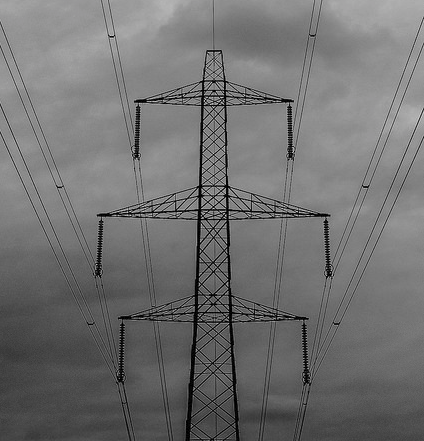Russia
See the following -
NSA Spying Risks $35 Billion In U.S. Technology Sales
International anger over the National Security Agency’s Internet surveillance is hurting global sales by American technology companies and setting back U.S. efforts to promote Internet freedom. Read More »
- Login to post comments
Obama Lets NSA. Exploit Some Internet Flaws, Officials Say
Stepping into a heated debate within the nation’s intelligence agencies, President Obama has decided that when the National Security Agency discovers major flaws in Internet security, it should — in most circumstances — reveal them to assure that they will be fixed, rather than keep mum so that the flaws can be used in espionage or cyberattacks, senior administration officials said Saturday. But Mr. Obama carved a broad exception for “a clear national security or law enforcement need,” the officials said, a loophole that is likely to allow the N.S.A. to continue to exploit security flaws both to crack encryption on the Internet and to design cyberweapons.
- Login to post comments
Officials Worry About Vulnerability Of Global Nuclear Stockpile To Cyber Attack
Senators requested a national intelligence assessment of foreign nations’ abilities to protect their nuclear weapons from digital strikes after the Pentagon's chief cyber officer said he does not know whether China, Russia or other nuclear powers, aside from the United States, have effective safeguards in place. Read More »
- Login to post comments
Revealed: The World's Most & Least Advanced Countries
UNTIL recently, the popular way to compare the progress of one country relative to another was to use the size of their economies. America had the biggest GDP (and almost the biggest per capita GDP), so it stood to reason it was the most advanced country in the world.
- Login to post comments
Russia To Spend Billions On Asteroid Defense
Moscow believes an operable national defense against threats from outer space can be built within 10 years’ time. The 500-kiloton explosion of a space bolide above the Urals region has sped-up allocation of some $2 billion to prevent future threats. Read More »
- Login to post comments
Successful Hacker Attack Could Cripple U.S. Infrastructure, Experts Say
A report tying the Chinese military to computer attacks against American interests has sent a chill through cyber-security experts, who worry that the very lifelines of the United States — its energy pipelines, its water supply, its banks — are increasingly at risk. Read More »
- Login to post comments
The Belarusian Connection
U.S. intelligence agencies last week urged the Obama administration to check its new healthcare network for malicious software after learning that developers linked to the Belarus government helped produce the website, raising fresh concerns that private data posted by millions of Americans will be compromised. Read More »
- Login to post comments
The Postmodern EHR: The Data Layer
 This second approach entails defining a data layer, which is the most important aspect of the Postmodern EHR architecture from my previous post. Why is this the most important layer? Most healthcare organizations are beginning to realize that their data is more valuable than their applications. Data has become a key asset, since good data is key to improving outcomes, managing chronic disease and enabling population health management. And it needs to be managed for the lifetime of the patient. Which application is going to last that long? What happens to health data when we switch applications?
This second approach entails defining a data layer, which is the most important aspect of the Postmodern EHR architecture from my previous post. Why is this the most important layer? Most healthcare organizations are beginning to realize that their data is more valuable than their applications. Data has become a key asset, since good data is key to improving outcomes, managing chronic disease and enabling population health management. And it needs to be managed for the lifetime of the patient. Which application is going to last that long? What happens to health data when we switch applications?
- Login to post comments
The State of Health IT in Europe
...In the UK, I heard a great deal about misalignment between IT departments and clinicians. IT departments are reluctant to embrace social, mobile, analytics, and cloud, instead insisting on centralized command and control of Windows desktop devices, often running Citrix/Virtual Desktop. Clinicians want mobile devices, universal access to applications anytime from anywhere on any device, and big data visualizations... Read More »
- Login to post comments
The World Knows an Apocalyptic Pandemic Is Coming
 A new independent report compiled at the request of the United Nations secretary-general warns that there is a "very real threat" of a pandemic sweeping the planet, killing up to 80 million people. A deadly pathogen, spread airborne around the world, the report says, could wipe out almost 5 percent of the global economy. And we're not ready. The ominous analysis was compiled by an independent panel, the Global Preparedness Monitoring Board (GPMB), which was assembled last year in response to a request from the office of the U.N. secretary-general, and convened jointly by the World Bank and World Health Organization (WHO). Co-chaired by the former WHO head and former Norwegian Prime Minister Gro Harlem Brundtland and the head of the international Red Cross, Elhadj As Sy, the GPMB commissioned expert studies and issued a scathing attack on the political, financial, and logistical state of pandemic preparedness affairs.
A new independent report compiled at the request of the United Nations secretary-general warns that there is a "very real threat" of a pandemic sweeping the planet, killing up to 80 million people. A deadly pathogen, spread airborne around the world, the report says, could wipe out almost 5 percent of the global economy. And we're not ready. The ominous analysis was compiled by an independent panel, the Global Preparedness Monitoring Board (GPMB), which was assembled last year in response to a request from the office of the U.N. secretary-general, and convened jointly by the World Bank and World Health Organization (WHO). Co-chaired by the former WHO head and former Norwegian Prime Minister Gro Harlem Brundtland and the head of the international Red Cross, Elhadj As Sy, the GPMB commissioned expert studies and issued a scathing attack on the political, financial, and logistical state of pandemic preparedness affairs.
- Login to post comments
U.S. Conducts Nuclear Response Exercises
U.S. Strategic Command this week is conducting a massive nuclear arms drill designed to “deter and detect strategic attacks” on the United States and allies. A Sunday press release announcing the May 12-16 “Global Lightning” exercise explicitly noted that the event’s timing is “unrelated to real-world events.”
- Login to post comments
US Utility Companies Warned About Potential for a Cyberattack After Ukraine’s
 The Obama administration has warned the nation’s power companies, water suppliers and transportation networks that sophisticated cyberattack techniques used to bring down part of Ukraine’s power grid two months ago could easily be turned on them. After an extensive inquiry, American investigators concluded that the attack in Ukraine on Dec. 23 may well have been the first power blackout triggered by a cyberattack — a circumstance many have long predicted...
The Obama administration has warned the nation’s power companies, water suppliers and transportation networks that sophisticated cyberattack techniques used to bring down part of Ukraine’s power grid two months ago could easily be turned on them. After an extensive inquiry, American investigators concluded that the attack in Ukraine on Dec. 23 may well have been the first power blackout triggered by a cyberattack — a circumstance many have long predicted...
- Login to post comments
VA Networks Besieged By Foreign Attackers, IG Says
Foreign attackers have repeatedly penetrated Veterans Affairs Department networks for at least the past three years, potentially gaining access to millions of unencrypted veterans records and other sensitive databases, according to House lawmakers and VA inspector general auditors. Read More »
- Login to post comments
We’re Not No. 1! We’re Not No. 1!
...a major new ranking of livability in 132 countries puts the United States in a sobering 16th place. We underperform because our economic and military strengths don’t translate into well-being for the average citizen. In the Social Progress Index, the United States excels in access to advanced education but ranks 70th in health, 69th in ecosystem sustainability, 39th in basic education, 34th in access to water and sanitation and 31st in personal safety...
- Login to post comments
Why The Smart Grid Might Be A Dumb Idea
Foreign hackers don't just pose a threat to classified material, corporate secrets, and individual privacy. Security experts say the greatest cyberthreat to the United States is the fact that the Chinese and Russian governments—and possibly other players—have succeeded in hacking into the nation's electric grid, giving them the ability, if they wish, to bring the U.S. economy to a screeching halt with the click of a mouse. Read More »
- Login to post comments